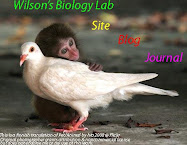
Attacking Cancer Cells With Hydrogel Nanoparticles
Researchers at the Georgia Institute of Technology have found a new way to aid chemotherapy and lessen the dramatic effects it has on the body. They are using special apoptosis causing RNA (siRNA) to kill cells in the specific area where the cancer is. Therefore, this procedure can target just the cancerours cells and not kill non-cancerous cells like chemotherapy does. This newly discovered type of siRNA does not totally do the job of chemotherapy, but it can make chemotherapy more effective and therefore lessen the time chemotherapy is actually used. This siRNA inhibits the EGFR’s (Epidermal growth factor receptors). In cancerous cells there is an overabundance of EGFR, which causes cells to go through mitosis faster and more often, and it also inhibits the cells apoptotic function. By interfering with the EGFR, siRNA allows the cell to regain its apoptotic function and also stop the constant reproduction of new mutated, cancerous cells.
The siRNA cannot survive outside of the cell very long, since it denaturalizes.
 However, the researchers have also found a hydrogel that keeps the siRNA intact outside the cells and therefore can be safely transported into the cancerous cells. The hydrogel does another, more important job. If the siRNA is only released at one time the cancerous cell can recover its control over the EGFR and therefore the treatment would be ineffective. However, the hydrogel releases the siRNA slowly and constantly over a period of time, which allows the cell to either go through apoptosis or for the chemotherapy to kill the cell.
However, the researchers have also found a hydrogel that keeps the siRNA intact outside the cells and therefore can be safely transported into the cancerous cells. The hydrogel does another, more important job. If the siRNA is only released at one time the cancerous cell can recover its control over the EGFR and therefore the treatment would be ineffective. However, the hydrogel releases the siRNA slowly and constantly over a period of time, which allows the cell to either go through apoptosis or for the chemotherapy to kill the cell.Works Cited:
http://www.medgadget.com/archives/img/sirna.jpg
http://www.sciencedaily.com/releases/2010/02/100216140404.htm?utm_source=feedburner&utm_medium=feed&utm_campaign=Feed%3A+sciencedaily+(ScienceDaily%3A+Latest+Science+News)&utm_content=Netvibes
http://www.odec.ca/projects/2005/thog5n0/public_html/Tumour.gif





No comments:
Post a Comment